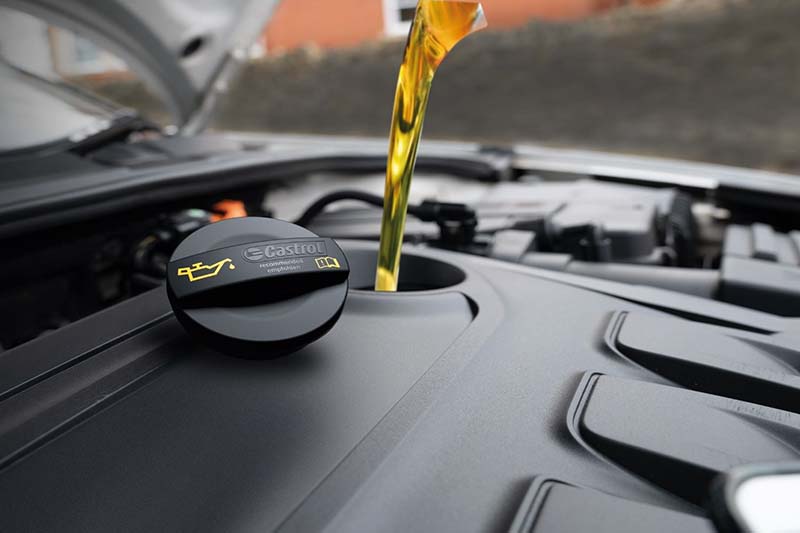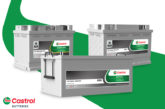
PMM speaks to Castrol’s Technical Expert Pawel Mastalerek about modern oil specifications and the importance of using the right oil for each engine.
What research has Castrol performed about the number of cars that are running on the incorrect engine oil? Is it a big problem?
Using the incorrect engine oil can have big consequences. Modern engines are built to very different design philosophies, and to increasingly tight tolerances. An oil of a different specification to that required can block filters, poison catalysts, and even cause oil starvation that can contribute to engine damage. It’s vital that the owner checks the vehicle manual and fits the correct oil for the car.
What advice does Castrol have for people that believe oil compatibility is dictated by viscosity alone?
Engine oil is so much more than just its viscosity – different specifications will need different chemistries to reach the performance required. Some engines run hot, so need extra antioxidants and detergents to prevent oil breakdown and piston deposits. Others have exhaust after-treatment devices to reduce emissions, and these will need lower levels of some additives to prevent blocking or poisoning of these devises. So, it’s vital that the owner picks the right specification of oil for their vehicle and the conditions it works under. Drivers unsure of which oil their car needs can use the Castrol oil selector on the Castrol website, which provides personalised product recommendations based on their vehicle.
Does Castrol believe that engine oils are going to continue to become ever more bespoke? Please explain why.
Automotive manufacturers are under pressure to deliver mobility solutions with decreasing carbon emissions which can be helped by thinner oils.
As a result, OEMs are deploying engines that deliver lower CO2 emissions. OEMs have historically utilised technologies such as smaller engines, direct gasoline injection and turbocharging, which put challenges on lubricants such as formulating to avoid low speed pre-ignition. Precision manufacturing techniques, advanced materials and the need for fewer friction losses mean we need to work closely with OEMs to develop the oils they need.
Castrol is continually innovating in close collaboration with OEM partners – including Ford, Jaguar, Honda, Land Rover, Volvo and Renault – to develop fluids that meet the automotive industry’s evolving demands.
What are the consequences of filling a car, made within the last 10 years, with incorrect oil? As an aside, how does the incorrect oil affect Gasoline Particulate Filters?
If an oil of the wrong viscosity is used in an engine that wasn’t designed for it, then the levels of engine wear can increase, and it can cause oil starvation issues that can rapidly lead to catastrophic engine failure. Thicker oils in newer engines will reduce the fuel efficiency of the engine, and may also cause oil supply issues. Using older ‘high SAPS’ (sulphated ash, phosphorous and sulfur) oils, with higher levels of additives, can block filters and poison catalysts and will shorten the life of exhaust after-treatment devices, and may even cause the vehicle to fail air quality or road-worthiness checks.
Using ‘standard-drain’ oils in extended drain, or severe duty applications, may mean that the life of the oil is depleted before the vehicle is due for a service. This can cause sludge, deposits and irreversible engine wear. gasoline particulate filters (GPFs) will be prematurely blocked if older ‘high-SAPS’ oils are used instead of the correctly specified oils.
What advice does Castrol have about increasing the ethanol content in petrol from E5 to E10? How does it affect the engine oil and how can owners and mechanics react?
Bioethanol is becoming increasingly present in petrol fuels as higher levels of renewable fuels are required. E10 is widely used in Europe, so car manufacturers are aware of the issue and have taken steps to produce compatible engines. European oil sequences and OEM specifications have included compatibility for E10 and beyond for some time now. Any modern high-quality engine oil will be suitable for use with E10.
Does Castrol recommend the use of engine oil flushes and why? Are there situations where they can cause more harm than good in a modern engine?
An oil-based engine flush can be an effective remedy for neglected engines, or engines that have otherwise experienced a build-up of sludge. Regular maintenance with high quality engine oil will prevent this from occurring, but when a second-hand car is purchased, the new owner may only have the choice of using flushing oil, or stripping down the engine to clean it. Solvent-based flushing products can damage seals, and may cause permanent oil leaks, and as such Castrol doesn’t recommend them.
A new product recently launched by Castrol, engine shampoo, is a pre-oil change treatment that contains solvent-free powerful cleaning agent (PCA) additive technology to deliver a deep yet gentle clean. Engine shampoo helps to maintain engine power and efficiency by dissolving and flushing out sludge during the oil change process.









